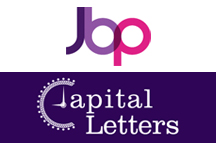Capital Letters by JBP provides an insight into the world of London politics and development.
A London wide housing target?
 This week has seen Boris Johnson dip his toe into the muddy water of affordable housing targets.
This week has seen Boris Johnson dip his toe into the muddy water of affordable housing targets.
The London Mayor is considering plans for fixed targets of 25% for affordable homes on “major sites” in the capital. This potential change in policy is reportedly being driven by Deputy Mayor for Planning and Policy, Sir Edward Lister.
If enforced by the GLA, the proposals could have a significant impact on development within London. There would no longer be a need for developers to produce viability reports, as a 25% provision of affordable housing would be compulsory.
The announcement has been met with a considerable amount of scepticism, primarily because of the way in which the GLA’s policy would undercut the targets originally stipulated by individual London boroughs. Indeed, Croydon has recently been applauded for the introduction of a new 50% target rate for affordable housing.
In spite of this, the city wide target has been lauded by many as a progressive move, particularly in light of many developments failing to even come close to their local authority’s affordability target.
Sadiq Khan warns of danger of right to buy scheme
 Mayoral hopeful Sadiq Khan has used figures from the National Housing Federation to make the point that more than half a million affordable homes could be removed from the capital’s stock by the government’s plans to sell off social housing in its controversial housing bill.
Mayoral hopeful Sadiq Khan has used figures from the National Housing Federation to make the point that more than half a million affordable homes could be removed from the capital’s stock by the government’s plans to sell off social housing in its controversial housing bill.
Khan’s office came to the 573,753 figure by combining the 135,462 council homes at risk, plus the 438,291 housing association homes. They have estimated that the three boroughs which would be most affected are Lambeth, Southwark and Tower Hamlets.
The bill, which will be considered by MPs in the next few months, “is expected to offer discounts worth up to £102,700 in London and £77,000 in the rest of England to people renting from housing associations who want to buy their homes.”
Khan’s concern is that the housing bill will contribute to London’s gentrification and “lead to the social cleansing of the capital”. He will respond to the legislation by tabling an amendment, requiring the government to build a replacement property before every sale.
New poll places Jowell on top
 The latest YouGov poll commissioned for LBC radio has suggested that Tessa Jowell is the favourite to become Labour’s candidate for the role of London Mayor.
The latest YouGov poll commissioned for LBC radio has suggested that Tessa Jowell is the favourite to become Labour’s candidate for the role of London Mayor.
Once all the “don’t knows” and “none of these” had been omitted from the sample of 1153 London adults, 42% of people thought that the former Olympics minister would be the best person for the job, out of the six people currently in the running. Sadiq Khan polled in second place, receiving exactly half the proportion of Jowell’s support from Londoners. Diane Abbot came in third, followed by David Lammy, Christian Wolmar and finally Gareth Thomas who came in last with 4%.
Jowell will also be pleased with another outcome of the survey, which highlights that when the “not sures” are excluded; she is ahead of the Conservative favourite Zac Goldsmith by 53% to 47%. Looking further at a breakdown of results, 58% of people who voted Conservative in the General Election earlier this year think that she is Labour’s best candidate. It is worth noting, however, that Jowell’s lead ’s lead has narrowed sharply since YouGov’s last poll.
While Sadiq Khan maintains the backing of London’s largest trade unions, this latest poll would suggest that Jowell is her party’s strongest candidate to beat Goldsmith.
JBP's Mayoral Watch
- After missing out on the Conservative shortlist, Sol Campbell has announced that he will target the 2020 mayoral election.
- Sadiq Khan has pledged to raise the London living wage to £10 an hour next year if he becomes mayor. He has also won the backing of former prosecutor and now MP, Keir Starmer.
- Labour has changed the date for the announcement of its candidate from 13 to 11 September. The party hope that moving the announcement to the Friday will mean prominent coverage in that day's Evening Standard, and that the candidate can then play a role in the following day's leadership announcement.














